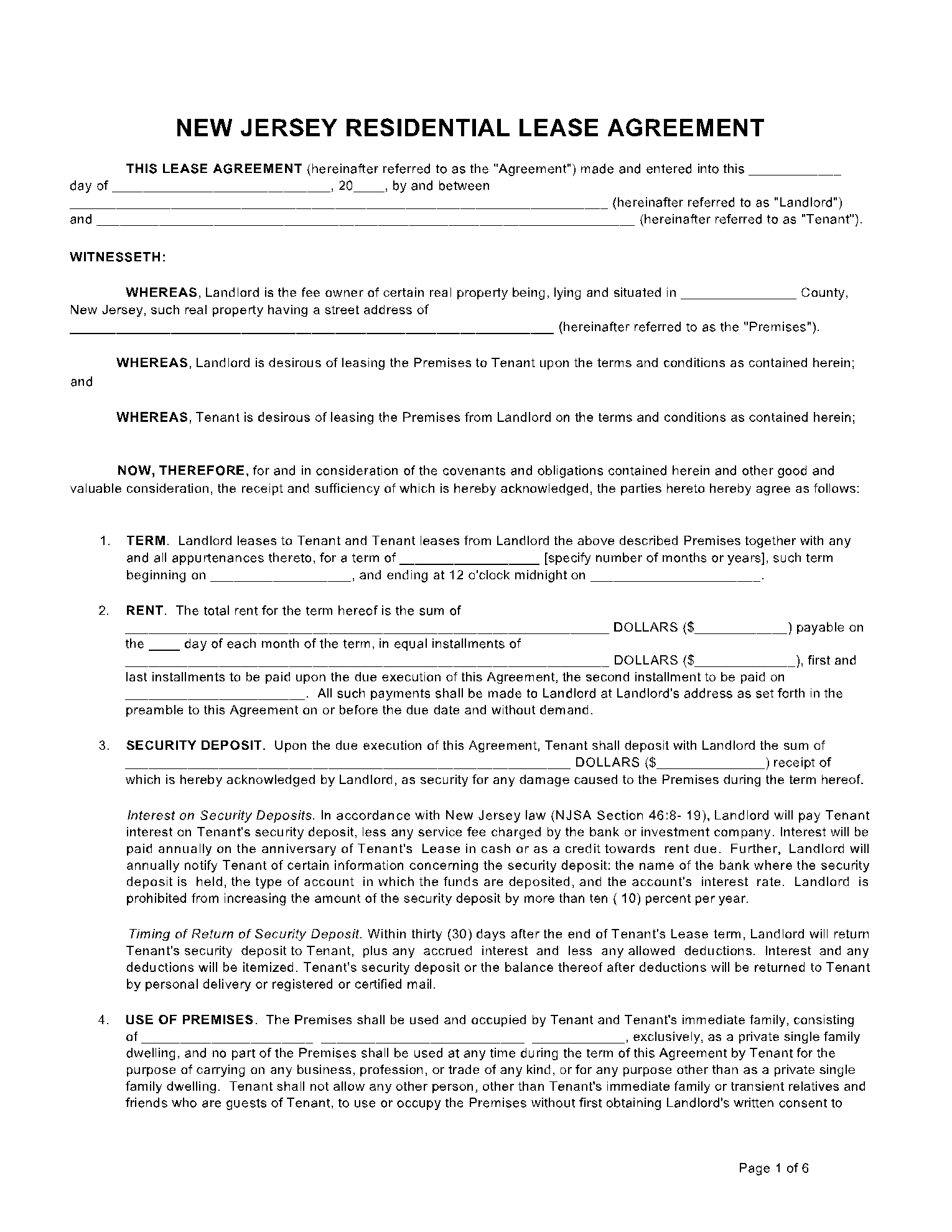The name “New Jersey(NJ) Standard Lease Agreement” belongs to the legally tying contract made between a landlord and the tenant and includes all the terms for renting a house or apartment as a residence. This document is also known as an apartment rental contract or a landlord-tenant lease. Usually, it is signed at the beginning of a rental term and stays in effect till the end date written in the lease agreement.
What is a New Jersey(NJ) Residential Lease Agreement?
A New Jersey(NJ) Standard Lease Agreement enables a landlord and tenant to conform to the renting of residential property. In this type of property, the landlord will usually ask the tenant for their permission to run a credit report to check their income and job status. If confirmed, a lease will be settled and signed. At the time of authorization, the tenant will generally be liable for the payment of the security deposit, first month’s rent, and any extra required fees or securities by the landlord.
What Disclosures Must Be Made in a New Jersey Lease Agreement?
According to the New Jersey association of realtors standard form of a residential lease, a standard lease agreement NJ must include the following disclosures:
If the residence is located in a flood area.
A strong font window guard statement: The landlord is demanded by law to provide, fit and maintain window guards in the residence if a child or children 10 years of age or younger are living in the apartment or regularly present there for a long period if the tenant gives the landlord a written application to install the window guards.
Upon the written request of the tenant, the landlord is also required to provide window guards in the corridors to which persons in the tenant’s section have access without going out of the building. Window guards are only asked to be provided in first-floor windows where the window ledge is more than six feet above class or other dangerous situations make installation of window guards essential to protect the safety of kids.
How to Write a New Jersey Residential Lease Agreement?
A standard lease agreement in NJ is the most ordinarily used residential leases. While they’re usually in place for 12 months, they often renew as a month-to-month. To write a standard New Jersey lease agreement, you must include:
- The date the standard lease agreement NJ was formed
- Name of both the landlord and the tenant
- The address of the residence
- The division where the property is located
- The length of the lease
- The date the lease starts and the date the lease will end
- The amount of rent paid by the tenant to the tenant
- The date the rent is due per month
- The amount is given for the security deposit
- How the amenities may be used
- The names of any other occupants with the named tenants
- Status of the premises upon move-in
- Whether subletting is allowed
- Whether dangerous elements are on the property
- How tenants may request maintenance and repairs
- What happens if the tenant chooses to stay after the lease ends
- Any late fee that will be charged if the rent cannot be paid on time
- How attorney’s fees are managed in the case of a court
- Whether there are child security window guards
- A section for list the address where the landlord and the tenant may get legal notices
In the end, a standard lease agreement in NJ must be signed by both the landlord and the tenant. Both the tenant and the landlord should keep a duplicate of the lease after the documents are signed.
Conclusion
An NJ standard lease agreement guarantees the tenant the use of a property and guarantees the landlord regular payments for a specified duration in exchange. Many landlords begin with a standard rental lease agreement then edit it according to state and city laws, and particular rental conditions if essential.
